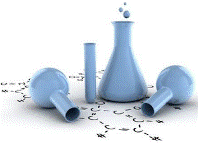Chemical and Biomolecular Engineering, Department of

Department of Chemical and Biomolecular Engineering: Faculty Publications
Date of this Version
6-17-2022
Document Type
Article
Citation
iScience 25, 104483, June 17, 2022
Abstract
Pancreatic ductal adenocarcinoma (PDAC) is a major research focus because of its poor therapy response and dismal prognosis. PDAC cells adapt their metabolism to the surrounding environment, often relying on diverse nutrient sources. Because traditional experimental techniques appear exhaustive to find a viable therapeutic strategy, a highly curated and omics-informed PDAC genome-scale metabolic model was reconstructed using patient-specific transcriptomics data. From the model-predictions, several new metabolic functions were explored as potential therapeutic targets in addition to the known metabolic hallmarks of PDAC. Significant downregulation in the peroxisomal beta oxidation pathway, flux modulation in the carnitine shuttle system, and upregulation in the reactive oxygen species detoxification pathway reactions were observed. These unique metabolic traits of PDAC were correlated with potential drug combinations targeting genes with poor prognosis in PDAC. Overall, this study provides a better understanding of the metabolic vulnerabilities in PDAC and will lead to novel effective therapeutic strategies.


Comments
This is an open access article under the CC BY-NC-ND license